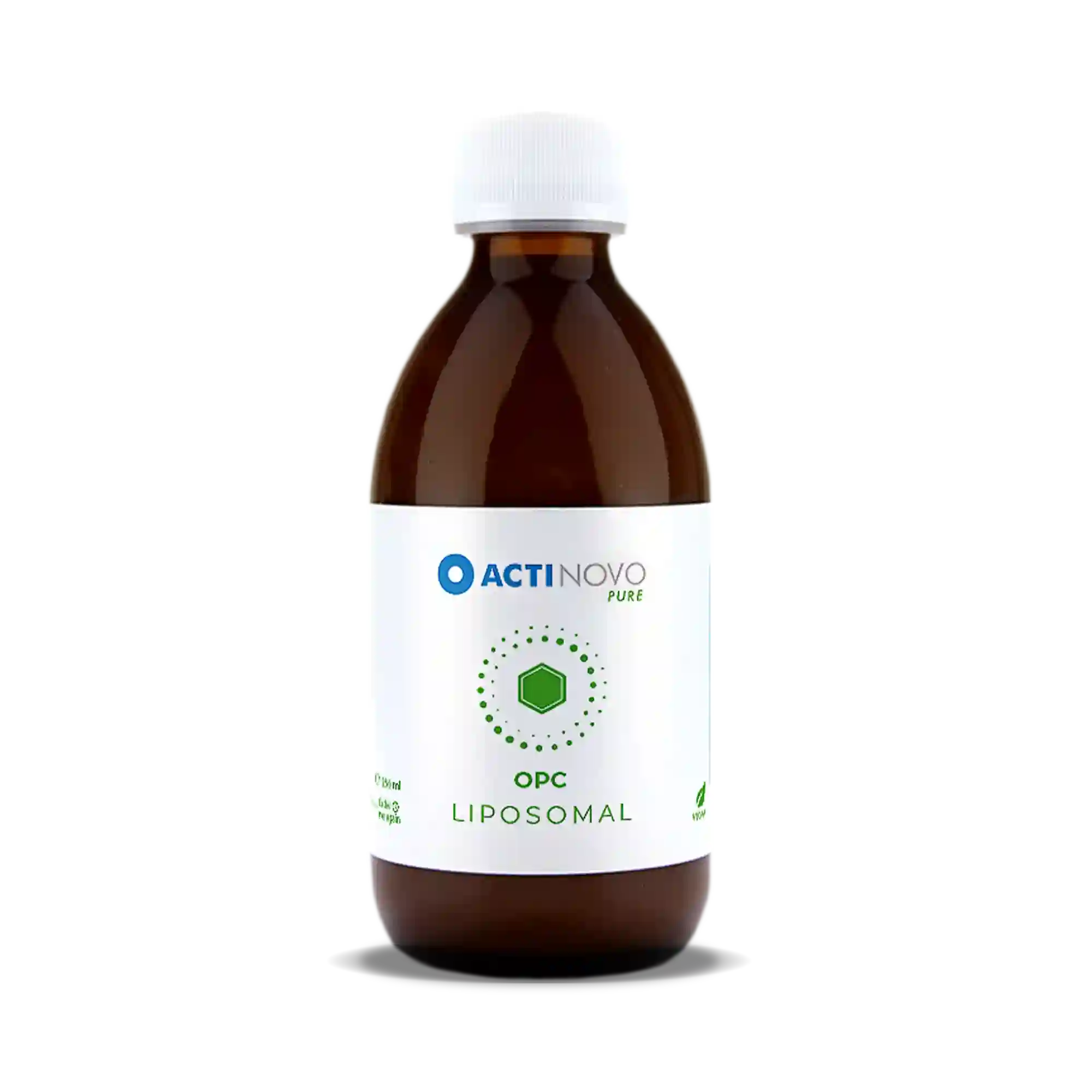
Everybody talks about OPC - should you supplement it?
When I think about an ideal diet that keeps people vital until old age, my mind wanders off to the Mediterranean. Like many others, I think of the way of life, the sun, the seawater there. Because in general, the Mediterranean region and the love of life associated with it are a good starting point for health.
Also, the Mediterranean Diet rich in healthy oils, many antioxidants and little cardiovascular stress (in the form of saturated fats, highly processed foods, etc.) would probably do most people in northern Europe just as much good.
Grapes are an integral part of the Mediterranean diet, especially in the form of wine and juice.
This raises the obvious question: Can a daily glass of red wine maybe even contribute to my wellbeing in a more medical sense? Is it perhaps the secret for vitality and healthy aging?
Or rather: What can substances from grapes do for my body?
A family of substances that have become very popular as food supplements are OPC (oligomeric proanthocyanidins).
What will you learn in this guide?
1. What is OPC? What is in it?
2. What can OPC do and why should I use it?
3. Which is the best OPC?
4. OPC or Resveratrol?
5. Practical use of OPC
1. What is OPC? What is in it?
The name OPC describes a group of plant substances discovered in peanut shells in 1948. They belong to the polyphenols and flavanols and are similar in structure to each other. In general, plants need OPC to protect themselves against various external dangers, as they have an antioxidant effect. These dangers include UV radiation and predators.
OPC (or oligomeric proanthocyanidins) are mainly found in leaves, fruit membranes (peanuts, grapes, red berries, red wine), or bark. Many also equate the term with "grape seed extract". This is partly correct, as grape seed extract (or grape seed extract) contains a variety of different proanthocyanidins but also other secondary substances such as resveratrol.
OPC is therefore not a direct fruit extract. It is also not a single pure substance, but a family of substances, similar to "polyphenols" or "vitamins", which in pure form are found in supplements.
2. What can OPC do and why should I use it?
Like other antioxidants from plants, OPC can protect our cells from damage that occurs as by-products of the following processes:
- UV radiation
- Aging
- Infections
- Chronic inflammation
- Sleep deprivation
- Stress
- Environmental toxins, drugs, alcohol
The stresses and strains of our everyday life cause the formation of free radicals. Plant antioxidants create an environment that is better able to deal with them, keeping us fresh and vital. Because if there is no neutralization of oxidation, it takes over and weakens our metabolism. In the worst case, chronic illnesses then get comfortable in our weakened system. Prevention is, therefore, the best solution.
Antioxidants also prevent the risk of vascular damage, which can prevent cardiovascular diseases and high blood pressure[1].
A meta-analysis published in the Journal of the American Dietetic Association analyzed the results of research on the positive effects of grape seed extract on the cardiovascular system. The literature review found that grape seed extract can significantly lower systolic blood pressure and heart rate[2].
3. Which is the best OPC?
The potential health benefits of OPC are limited by its poor solubility and therefore poor intestinal absorption[3].
Emulsions with other water-insoluble substances such as fats can theoretically improve the absorption of OPC. Liposomal OPC is a good approach in order to make OPC more bioavailable.
4. OPC or Resveratrol?
Both are substances that perform similar tasks in plants, they can be found in grape seed extract. Since resveratrol is a single, more definable substance and has received much attention in recent years as THE "red wine polyphenol", more studies have been conducted on it than on OPC.
Whether OPC is really able to protect us from chronic diseases in youth and old age has to be substantiated by more profound studies in this field. What is certain, however, is that OPC, resveratrol and grape seed extract have a firm place in European naturopathy. The European Food Safety Authority (EFSA) has approved OPC as safe and suitable for food supplements.
5. Practical use of OPC
The European Food Safety Authority EFSA does not set a maximum intake limit for OPC.
OPC generally have a preventive or long-term effect and should, therefore, be taken up either through the regular diet or in rather small supplemented doses over a longer period of time. 100 - 300 mg daily are to be classified as harmless.
In the liposomal variant, OPC can be taken daily, preferably on an empty stomach.

